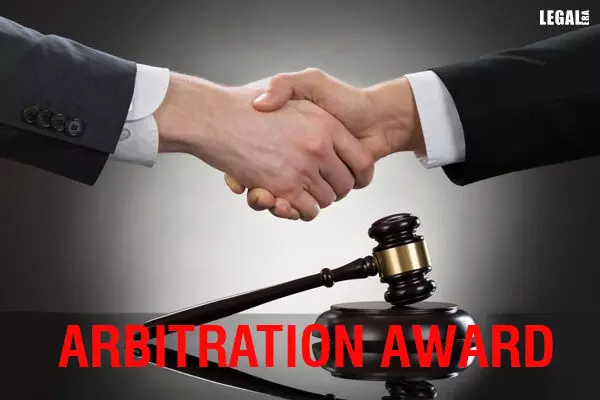- Home
- News
- Articles+
- Aerospace
- Agriculture
- Alternate Dispute Resolution
- Banking and Finance
- Bankruptcy
- Book Review
- Bribery & Corruption
- Commercial Litigation
- Competition Law
- Conference Reports
- Consumer Products
- Contract
- Corporate Governance
- Corporate Law
- Covid-19
- Cryptocurrency
- Cybersecurity
- Data Protection
- Defence
- Digital Economy
- E-commerce
- Employment Law
- Energy and Natural Resources
- Entertainment and Sports Law
- Environmental Law
- FDI
- Food and Beverage
- Health Care
- IBC Diaries
- Insurance Law
- Intellectual Property
- International Law
- Know the Law
- Labour Laws
- Litigation
- Litigation Funding
- Manufacturing
- Mergers & Acquisitions
- NFTs
- Privacy
- Private Equity
- Project Finance
- Real Estate
- Risk and Compliance
- Technology Media and Telecom
- Tributes
- Zoom In
- Take On Board
- In Focus
- Law & Policy and Regulation
- IP & Tech Era
- Viewpoint
- Arbitration & Mediation
- Tax
- Student Corner
- AI
- ESG
- Gaming
- Inclusion & Diversity
- Law Firms
- In-House
- Rankings
- E-Magazine
- Legal Era TV
- Events
- News
- Articles
- Aerospace
- Agriculture
- Alternate Dispute Resolution
- Banking and Finance
- Bankruptcy
- Book Review
- Bribery & Corruption
- Commercial Litigation
- Competition Law
- Conference Reports
- Consumer Products
- Contract
- Corporate Governance
- Corporate Law
- Covid-19
- Cryptocurrency
- Cybersecurity
- Data Protection
- Defence
- Digital Economy
- E-commerce
- Employment Law
- Energy and Natural Resources
- Entertainment and Sports Law
- Environmental Law
- FDI
- Food and Beverage
- Health Care
- IBC Diaries
- Insurance Law
- Intellectual Property
- International Law
- Know the Law
- Labour Laws
- Litigation
- Litigation Funding
- Manufacturing
- Mergers & Acquisitions
- NFTs
- Privacy
- Private Equity
- Project Finance
- Real Estate
- Risk and Compliance
- Technology Media and Telecom
- Tributes
- Zoom In
- Take On Board
- In Focus
- Law & Policy and Regulation
- IP & Tech Era
- Viewpoint
- Arbitration & Mediation
- Tax
- Student Corner
- AI
- ESG
- Gaming
- Inclusion & Diversity
- Law Firms
- In-House
- Rankings
- E-Magazine
- Legal Era TV
- Events
Delhi High Court: Arbitrator Cannot Decide Claim Based on Math Calculation Sans Evidence

Delhi High Court: Arbitrator Cannot Decide Claim Based on Math Calculation Sans Evidence
The dispute arose from a contract related to the construction of civil works for a hydro-electric project
The Delhi High Court has held that an arbitrator cannot decide a party's claim solely based on mathematical calculations without concrete evidence. This is when involving financial matters.
The Court emphasized that such novel mathematical derivation must have a solid foundation in the pleadings and substantial supporting evidence to avoid prejudice to the opposing party.
The dispute before the Court arose from a contract related to the construction of civil works for a hydro-electric project.
The main disagreement centered around the alleged increase in minimum wages for labor during the contract execution. The claimant contended that it incurred substantial additional expenses due to the revised minimum wages.
However, the Court observed that the arbitral award (based on the claimant's mathematical derivations), lacked a reasonable basis and was arbitrary. The respondent's assumptions and reductions in labor escalation amounts were without merit, leading to a rewriting of the contract terms.
Thus, the Court set aside the arbitral award, citing its perversity and arbitrariness. It emphasized the need for a strong foundation in pleadings and cogent evidence when dealing with financial claims.




